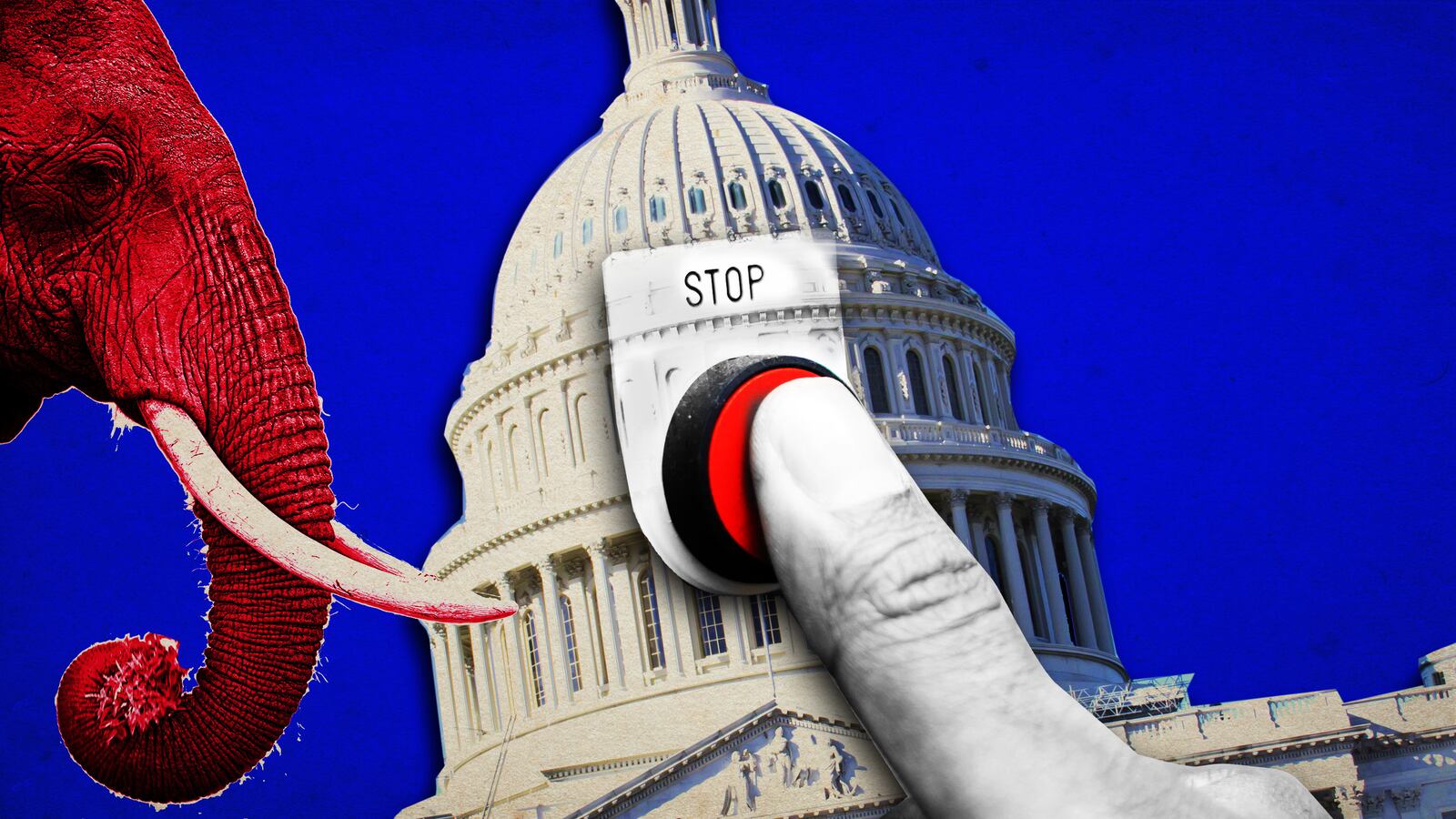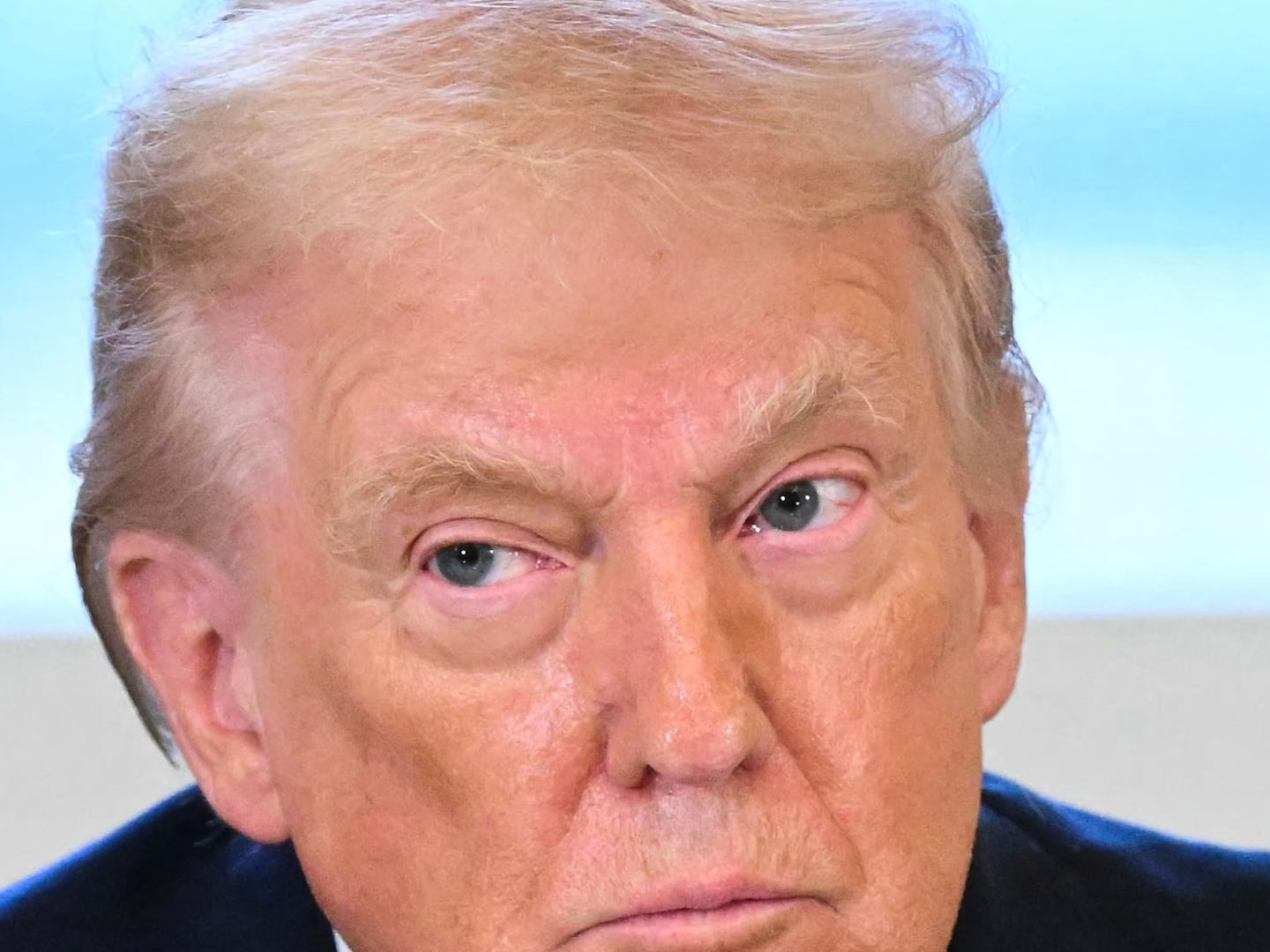Republican senators emerging from closed-door meetings on Tuesday said they were optimistic that a partial government shutdown would be averted ahead of Friday’s deadline. But their optimism was shaded by a touch of confusion and concern after the White House gave mixed signals about what President Donald Trump would actually support.
“I don’t want to do it if he’s going to veto it,” Sen. John Kennedy (R-LA) told The Daily Beast after White House Press Secretary Sarah Huckabee Sanders indicated that Trump won’t make up his mind on a government funding bill until after the Senate votes on one.
Earlier that day, Sanders had said that the administration would “make a determination on whether or not we’re going to sign” a funding bill after the Senate actually “vote[s] on something and pass[es] something.” Those remarks upended the traditional legislative process, in which the White House works with lawmakers before the vote to signal what would be palatable for the president and what would be out of bounds.
Congressional leaders have been negotiating for weeks on government funding legislation, with the main disagreement revolving around spending levels for enhanced security at the U.S.-Mexico border. With the deadline just three days away, lawmakers have resigned themselves to the likelihood that they will have to pass a short-term funding bill and punt the longer-term resolution to next year, when Democrats take control of the House of Representatives.
“I don’t think we ought to pass anything until we have some kind of understanding with the House leadership, both of them, that they would support what we do… Then, we have to have the president,” Senate Appropriations Committee Chairman Richard Shelby (R-AL) told reporters.
But with Trump refusing to say whether he would sign a short-term funding bill at all, senior Republicans are still unsure about the path forward.
“I would think he would [sign a short-term bill],” Shelby said, before cautioning: “Now, I don’t know that.”
Shelby said Trump appears “more fluid than he was” last week, when the president proclaimed during an Oval Office brawl with Speaker-designate Nancy Pelosi (D-CA) and Senate Minority Leader Chuck Schumer (D-NY) that he would be “proud” to shut down the government if he is unable to secure at least $5 billion for border wall funding. And other senators seemed bullish that lawmakers would avoid a partial government shutdown at midnight on Friday night.
“I think you guys are going to be able to go home Thursday,” Sen. Bob Corker (R-TN) told reporters after a Senate GOP lunch.
But punting until next year would create more roadblocks for the president’s immigration agenda. With Democrats set to take control of the House in January, Pelosi will have more leverage during negotiations on a longer-term spending bill, making it more difficult for Trump to secure funds for a border wall.
Hoping to take advantage of full Republican control, Sanders on Tuesday said the president and his team were looking for “other ways that we can get to that $5 billion.” Later, she told reporters that Trump had asked his cabinet secretaries to “look for funding that can be used to protect our borders.” Democrats have said that re-appropriating money in that fashion would require an act of Congress, one that they are not prepared to endorse.
Elsewhere on Tuesday, Senate Majority Leader Mitch McConnell (R-KY) proposed another way around the impasse, suggesting—according to aides—that Congress appropriate $1 billion for an immigration “slush fund” that Trump could use on his own. Both Schumer and Pelosi swiftly rejected that offer. It was unclear if McConnell had proposed it on his own or at the administration’s behest.
“A lot of people are talking about a lot of ideas,” said one senior Republican Senate aide. “I couldn't tell you where that originated.”






